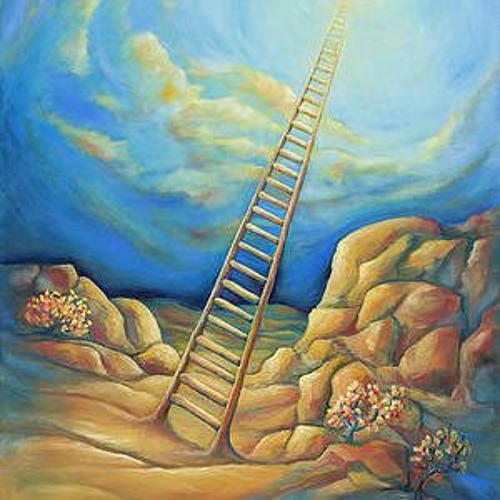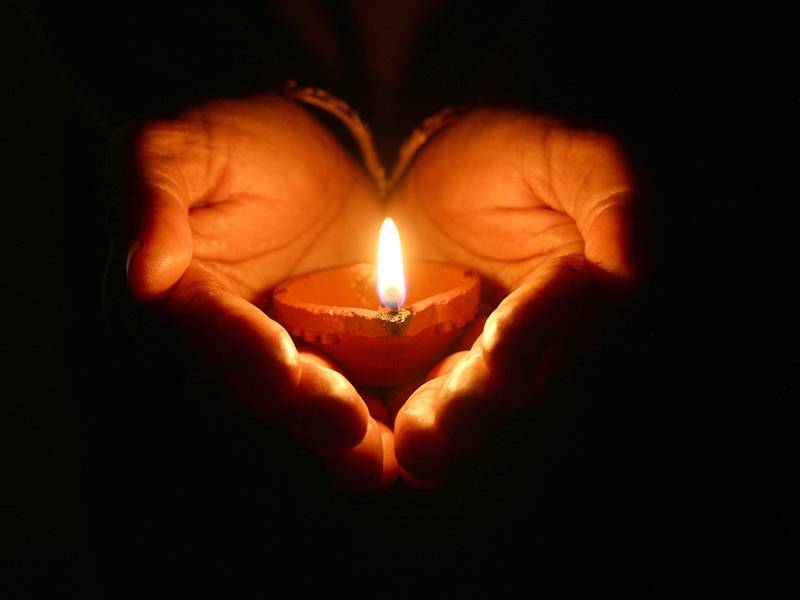Bonjour / Hello [nickname_else_first_name]
Table of contents
1) Perashat Hashavoua - Rabbi Eli Mansour
2) Halakhat Hashavoua (Halakhot related to day to day life) By Hazzan David Azerad
The Mitzva of Tosefet Shabbat
3) Holy Jokes!
4) For KIDS

This Week's Parasha Insight with Rabbi Eli Mansour
Parashat Vayeseh: Like the Dirt of the Earth
We read in Parashat Vayeseh of Yaakob Abinu’s famous dream, in which G-d promised to protect him along his journey to Haran. G-d also promises to produce a great nation from Yaakob, announcing, "Your offspring shall be like the dirt of the earth" ("Ve’haya Zar’acha Ka’afar Ha’aretz" – 28:14). G-d’s blessing that Yaakob’s descendants shall be "like the dirt of the earth" obviously refers to their numbers. Just as the world has earth on the ground in abundance, Am Yisrael will be a large nation that will fill the world.
Still, we must wonder why G-d would compare Beneh Yisrael to the earth of the ground, which hardly seems like a flattering comparison. Elsewhere, in promising the patriarchs that they would produce a large nation, G-d uses other analogies, such as the stars, or the sand of the seashore, which has a certain aesthetic quality to it. But why would he compare us to dirt?
The Midrash answers that the dirt of the ground is constantly tread upon, and yet it always remains in existence. The earth on the ground will stay there no matter how many people step on it, and no matter how many times this happens. Beneh Yisrael were blessed with this same quality. Like the earth, we, too, have been "stepped on" – oppressed and humiliated by enemy nations – throughout our long history. And yet, we are still here. Despite centuries of efforts of virulent anti-Semites, the Jewish people are still around, and will always be around. We are blessed with the quality of dirt, which remains intact no matter how many times it is trampled on.
But there is also another explanation for why G-d blessed the Jewish people that they will be "like the dirt of the earth." People look disdainfully upon dirt, they step on it and they are repulsed by it, but the earth lies there silently, tolerantly and patiently enduring the abuse, and ultimately "wins." Once a person’s soul departs from this world, his body is covered by dirt. The dirt endures the person’s scorn and derision throughout his life, but ultimately, it comes out on top, so-to-speak.
Indeed, we should all endeavor to be "like the dirt of the earth." Our Sages speak of the greatness of those who do not respond to insults, who keep quiet in the face of humiliation, saying that they will in the future shine brightly like the sun. We should follow the example of the dirt, and not react when we are offended. As we learn from the dirt, that is ultimately the best strategy for ensuring that we will ultimately come out on top. We thus recite in the Elokai Nesor section after the Amida, "to those who curse me – my soul shall be silent; my soul shall be like dirt to all." We ask Hashem to give us the strength to remain silent, to maintain our composure in the face of insults, following the example of the earth, and in fulfillment of His blessing to Yaakob Abinu that his descendants should be like the dirt of the earth.

Halachot this week are selected and Translated by Hazzan David Azerad
The Mitzva of Tosefet Shabbat
The inherent sanctity of Shabbat is present only from the beginning of the seventh day, when Shabbat starts. However, the Torah commands that we extend the sanctity of Shabbat into the mundane week. That is, we are meant to accept the holiness of Shabbat upon ourselves a bit before the start of the seventh day. The same applies to the end of Shabbat: it ends at the end of the seventh day, but we are commanded to extend this holiness a little longer after Shabbat (SA 261:2; Bi’ur Halakha states that most authorities consider this extension to be a Torah law).
This extension of Shabbat, called tosefet Shabbat, demonstrates that Shabbat is very dear to us. We go out to greet it before its arrival, and we prolong its stay by accompanying it upon departure. It is like an honored guest whom we go out to greet and whom we escort when it is time to take leave.
We have already learned that the status of the time between shki’a and tzeit is uncertain, and thus one must be stringent then. Therefore, to fulfill the mitzva of tosefet Shabbat, we need to accept Shabbat a bit before shki’a. Women customarily accept Shabbat when they light the Shabbat candles. In Jerusalem, the custom is to light candles forty minutes before shki’a, in Haifa, thirty minutes before, and in Tel Aviv and most other Israeli cities, twenty minutes before. Men who recite the Minĥa prayers close to shki’a are accustomed to accept Shabbat later, but they too must be careful to accept Shabbat a few minutes before shki’a to add to the holy from the mundane.
One who wishes to accept Shabbat even earlier is commendable, as long as it is within a seasonal hour and a quarter before shki’a. According to many poskim, one may not accept Shabbat earlier than this (SA 263:4; MB ad loc. 18).
Shabbat concludes with the appearance of three medium-sized stars, but the Sages were worried that people might make a mistake and think that three large stars were medium-sized. Therefore, to be on the safe side, they said that one should wait until the appearance of three small stars grouped (SA 293:2). Nowadays, we do not need to look at the stars. Rather, we can rely on clocks and calendars, where the times listed for the end of Shabbat already incorporate tosefet Shabbat.
This mitzva teaches us that there is a connection between the weekdays and Shabbat, which is why we can add from the mundane to the sacred. We can also see, based on this, the inner striving of the mundane to be connected to the sacred.
Bevirkat Shabbat Shalom Umevorach
David Azerad
3) HOLY JoKeS!!
Selection of funny snippets, loosely related to this weeks parashah or current events, to brighten your day


 4) FOR KIDS
4) FOR KIDS

Click on the image above to open the youtube video
Vayetze Arts & Crafts (click on image to go to site)















 4) FOR KIDS
4) FOR KIDS
